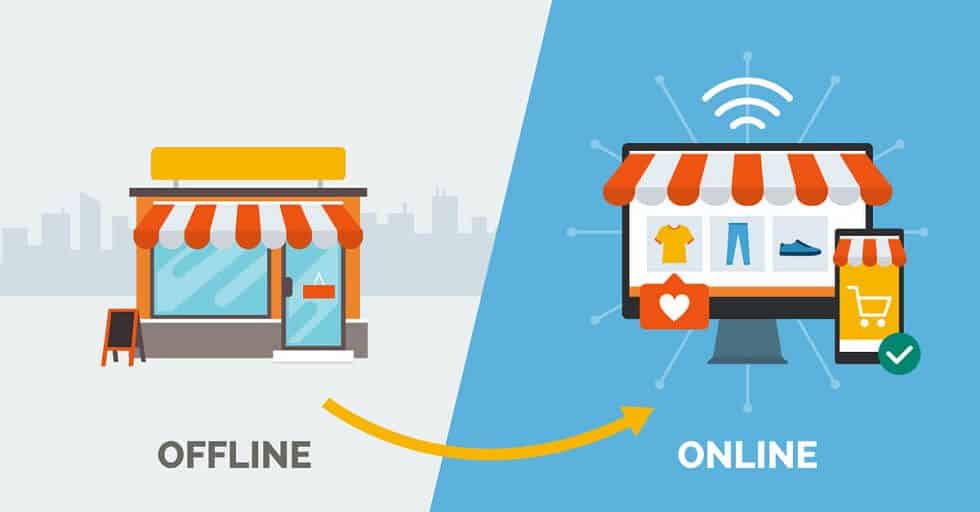Covid’s Impact on eCommerce

Now that the Delta variant has hit, it looks like Covid is here to stay with us a while. It’s worth reflecting on what the virus has done from a payments perspective and its effect on chargebacks as well.

Besides the shift to remote work, the most pronounced business impact of Covid was the boom in eCommerce. Online retail in the U.S. grew 32 percent year-over-year to $791.7 billion in 2020, according to data from the U.S. Census Bureau, as people shifted from buying goods in brick-and-mortar stores to shopping online.
In payments, there was an accompanying shift from card present to card-not-present (CNP) transactions that one would expect with the surge in eCommerce. CNP transactions were 25 percent of total debit transactions during the first three months of 2020, according to the credit union service organization PSCU. However, for the April 2020 through March 2021 period, the figure rose to 31 percent. Credit CNP transactions accounted for 27 percent of all credit transactions in 2020’s first quarter, but by March 2021 accounted for 45 percent of total credit transactions.
eCommerce booms along with CNP payments
At major eCommerce companies the growth was more pronounced. The total revenues at online marketplace Shopify grew 86 percent year-over-year to $2.9 billion as gross merchandise value (GMV) on the platform spiked 96 percent to $119.6 billion in 2020. The volume of transactions processed through Shopify Payments also more than doubled to $53.9 billion during the same period.
On Amazon, GMV grew 46 percent to $490 billion in 2020, with $300 billion of that from third-party sellers, according to analyst estimates. By the end of 2021, Amazon is expected to be a bigger retailer than Walmart.

Online payment service provider PayPal also saw strong growth, with total payments volume jumping 31 percent to $936 billion in 2020, yielding revenue of $21.5 billion. The payments service provider added 72.7 million net new active accounts (NNAs) in 2020. PayPal also forecasted high percentage growth in total payments volume “in the high 20s” for 2021 and expects to add 50 million NNAs this year.
Order fulfilment strained
This surge in eCommerce sales however led to problems in order fulfilment with ramifications for chargebacks. Overwhelmed courier services and the postal service experienced significant delays in deliveries on their routes amid lockdowns and the surge of orders. “We are probably working at a holiday volume rate, but we’re doing it with about a 74% staffing level,” a mail handler was quoted as saying by the Wall Street Journal.
To address health concerns caused by corona, measures important for fighting chargeback claims fell by the wayside. For example, the postal service stopped collecting addressee signatures for deliveries where that would be the normal procedure. Tracking services also became less useful with some packages getting stuck and/or vanishing from the system altogether.

Consequently, the number of chargebacks jumped during corona last year as more people claimed “Item not received” in frustration with shipping delays. The exact amount of the increase in chargebacks has not been publicized by the card networks but it is widely suspected to be in the double digits. For example, ACI Worldwide data shows that non-fraud chargebacks increased 26 percent in December 2020 compared to December 2019
Fraud rises with increased use of BOPIS
Fraud chargebacks also increased as fraudsters took special advantage of the booming trend in buy online, pickup in store (BOPIS). There was a 7 percent fraud attempt rate with BOPIS compared with 4.6 percent with other delivery channels, based on ACI Worldwide data from last year. BOPIS fraud attacks increased by 55% in 2020, according to Forter’s Ninth Edition Fraud Attack Index.
In BOPIS fraud schemes, bad actors use stolen credit cards or stolen account credentials to place orders online, pick up goods in-store, and either keep goods or resell them. Because it’s a card-not-present transaction, the fraud risk falls squarely on the retailer.
BOPIS purchases are designed for speed and convenience, so there’s little time for businesses to detect fraud. Businesses have to approve as many orders as possible as quickly as possible, since the purchase-to-pick-up fulfillment window is small. Fraud analysts have almost no time to perform manual reviews of suspicious purchase details, and bad actors know it.
Credit card brands ease up on merchants
Visa and Mastercard did not extend merchant response times due to the crisis, but other concessions were made. Visa launched the COVID-19 Dispute Monitoring Program in April 2020 to help maintain the integrity of the dispute process by reducing invalid disputes filed by issuers. The program monitors consumer dispute volumes for the airlines, entertainment, lodging, transportation and travel services segments. Any issuer submitting more than 50 invalid consumer disputes daily will be flagged by the program and have to reverse the chargebacks within three days of filing.
Additionally, Visa suspended the Visa Dispute Monitoring Program (VDMP) and Visa Fraud Monitoring Program (VFMP) for merchants in the travel and entertainment (T&E) category codes from April through the end of the July compliance cycle. The Visa Acquirer Monitoring Program (VAMP) was also suspended for disputes arising from T&E merchants through the July compliance cycle.
Similarly, Mastercard suspended its identification of merchants in airline, cruise line, passenger railway and travel agent industries for inclusion in the Excessive Chargeback Program (ECP) for the four-month period between April and August.
American Express was the only major U.S. card brand to extend the amount of time businesses had to respond to a dispute, raising it from 20 to 30 days. The extension covered chargebacks from March 1, 2020 through May 31, 2020.
Dealing with rising number of chargebacks
By the fourth quarter of last year things had more or less returned to normal. However, should covid variants bring back the infection rate to last year’s highs, we have a good idea of what the credit card companies’ responses will be. Meanwhile, the growth in eCommerce and CNP payments seems to be continuing into 2021. That means expect chargebacks to continue growing.
If you and your business have trouble handling the volume of chargebacks you are receiving, contact us at Justt. We take out the hassle from the chargebacks and offer some of the highest success rates fighting disputes in the industry. So go ahead and reach out!
Contact us to learn more about Justt’s solution






